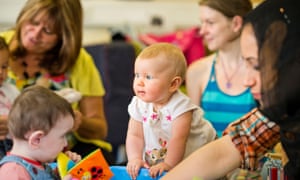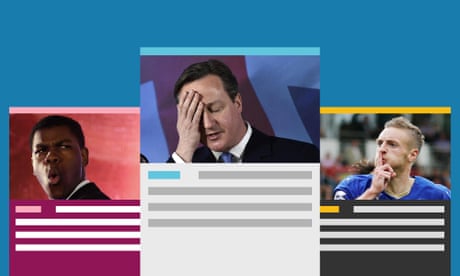Study finds family finances stretched further as typical parent can expect to spend £231,843 raising a child born in 2016
 The cost of childcare rose by 4.3% last year, according to researchers. Photograph: Adrian Sherratt/Alamy
The cost of childcare rose by 4.3% last year, according to researchers. Photograph: Adrian Sherratt/Alamy
The cost of raising a child to the age of 21 has jumped to £230,000, or more than the price of an average semi-detached house in Britain, according to new research.
Parents will spend more than £70,000 for childcare and babysitting alone, and spend another £74,000 on education-related expenses such as uniforms, school lunches, text books and school trips.
Each generation should be better off than their parents? Think again Larry Elliott Economics editor
In total, the typical parent can expect to spend £231,843 raising a child born in 2016, an increase of 65% since 2003, when the analysts at the Centre for Economics and Business Research first calculated cost figures for parenthood.
The figure is for a child attending a state school. Parents who send their offspring to a private day school can expect to wave goodbye to more than £373,000 by the time he/she hit 21, rising to just short of £500,000 if the child goes to boarding school.
The cost of childcare rose by 4.3% last year, according to the researchers, even though general inflation stands at just 0.2%, with average wage rises limping along at around 2%. Since 2003, childcare costs have jumped by 78%, far outstripping inflation of 45% since then.

The stories you need to read, in one handy email
“The cost of raising a child has increased by more than £2,500 in the last year, and more than £13,000 over the last five years. In London, the cost of raising a child is now more than a quarter of a million pounds – £253,638,” said insurer LV=, which commissioned the research.
It means the average UK parent will have to spend more than a third (38%) of their take-home pay just to be able to afford one child, with the costs highest between the ages of one and four years old.
In a child’s first year, parents will spend £11,498, rising to £63,224 between one and four. They then get a mild breather, with children between 5 and 17 costing an average of £8,640 a year. Then comes the shock of higher education costs, with the average 18 to 21-year-old costing their parents £17,815 a year. Average annual cost of bringing up a child
Six out of 10 parents said they are struggling to cope, and that getting wider family to help out – such as grandparents assisting with childcare – is becoming more difficult.
The research suggests that families are cutting back on spending on hobbies, toys, leisure and recreation, although with the half-term break upon us, spending on holidays outside the home appears sacrosanct. Over the life of a child, parents will spend £16,882 on holidays, compared with £11,458 in the first report in 2003.
Myles Rix of LV= said: “The cost of raising a child is at an all-time high and, with the price-tag of childcare continuing to rise, family incomes are being stretched even further.”
Today’s children are getting a raw deal on pocket money, the figures suggest. The researchers estimate that parental spending on pocket money has gone up by much less than inflation since 2003, and rose by just 0.2% compared with 2015.
Another crumb of comfort for hard-pressed parents is that the cost of clothing a child continues to fall. Last summer supermarket chain Aldi launched a pack of two polo shirts, a round-neck sweater and a skirt or pair of trousers for just £4. According to the CEBR researchers, parents in 2016 should expect to spend £10,942 on clothes over the life of their child, or 4% less than the figure for 2003.
The surging cost of raising a child is frequently cited as the chief reason why parents are having fewer children and why many mothers put off having a child until their 30s. However, the reality is that until recently Britain was in the grip of a baby boom, according to official figures from the Office for National Statistics.
Between 2001 and 2012, the number of births climbed rapidly, jumping from 594,634 to 729,674, although the number dropped slightly to 695,233 in 2014. This brings UK birthrates back to levels common in the early 1970s, although far short of the all-time peak of 875,972 in 1964. Just over a quarter (27%) of births in 2014 were to mothers born outside the UK.




No comments:
Post a Comment